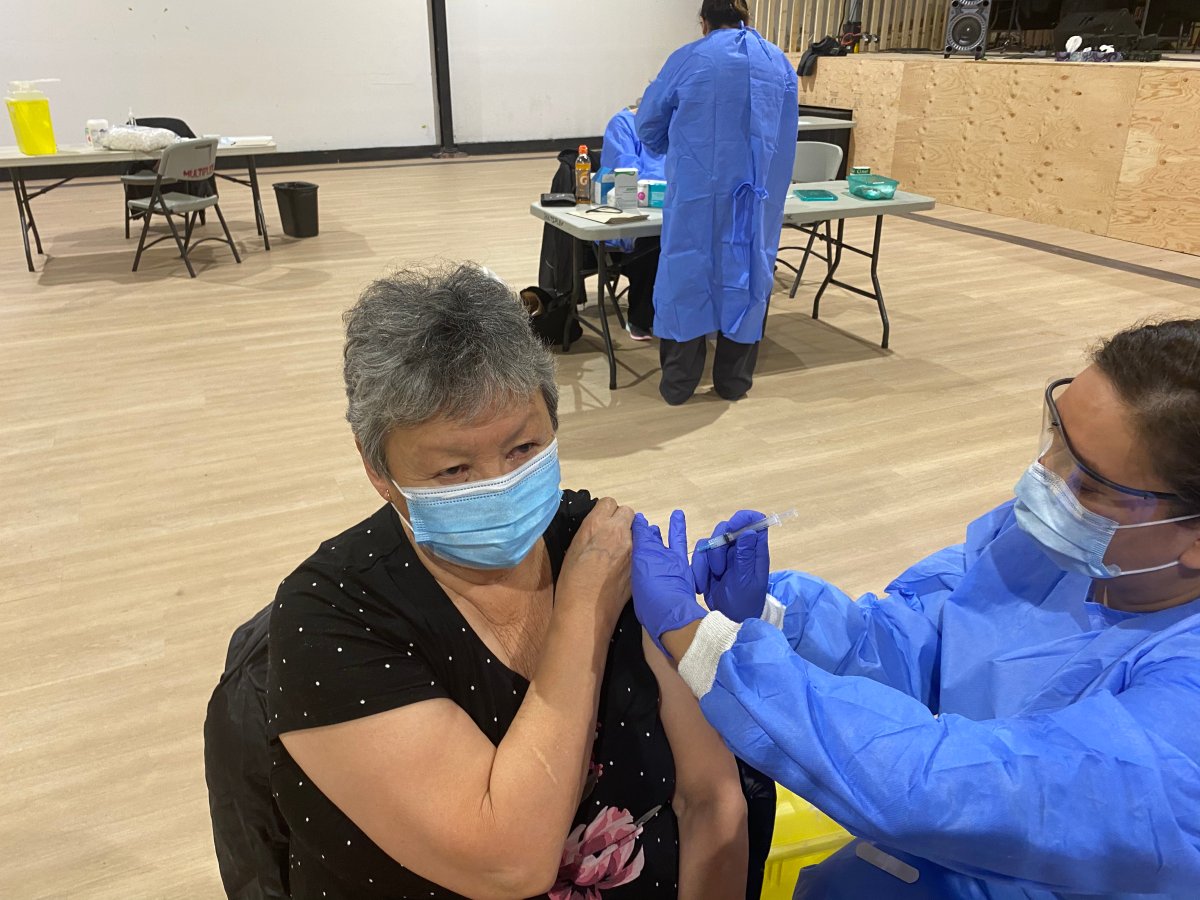Seven First Nations communities in Northern Manitoba have now received the Moderna vaccine, as leadership works to distribute the doses to several isolated communities and reassure some people it is safe.

First Nations health experts decided priority for the first round would go to elders over 70, along with some staff at care homes.
Some leaders, such as Chief Leroy Constant of York Factory First Nation, say they’ve expanded eligibility criteria somewhat after a handful of eligible people refused.
“The fear is; ‘why are they giving it to First Nations people first? Why do we have to be the first ones to try it?’ Simply because we’re most at risk. That’s the determining factor,” Chief Constant says.
“We have a lot of old school people in our communities that don’t believe in the western way, they believe in the traditional medicines, and we have to respect that.”
He adds leadership is making accurate, up-to-date information on vaccine safety available to quell worries.
Chief Larson Anderson, of Norway House Cree Nation, finds himself in a similar situation, but says by no means will anyone be forced or coerced into receiving the vaccine.
- Invasive strep: ‘Don’t wait’ to seek care, N.S. woman warns on long road to recovery
- Canadian man dies during Texas Ironman event. His widow wants answers as to why
- ‘Super lice’ are becoming more resistant to chemical shampoos. What to use instead
- Solar eclipse eye damage: More than 160 cases reported in Ontario, Quebec
“So it’s taking a little bit longer … we’re having to explain a little better, our public health is explaining what (the vaccine) is meant to do,” Chief Anderson says.
Three people initially refused the vaccine, Chief Anderson said, but they changed their minds after having a conversation with a doctor.
Meanwhile, on Pimicikamak Cree Nation, Chief David Monias applauded the many elders who lined up for the shot, including several who weren’t yet eligible.
“So that was a good sign that people were coming forward … because that kind of removed some notion that this is not a good thing,” Chief Monias says.
“They stepped up to be the first and show this is a good thing and show that it’s safe and people should be vaccinated. That speaks volumes.”
One of the first to roll up his sleeves was elder and councillor Mervin Garrick, of Pimicikamak Cree Nation, who suspects doubts will disappear as more people report positive experiences similar to his.
“A lot of times it’s the lead person, like a leader, who has to take that lead role,” says Garrick, who points out being in his 70s makes him the oldest person on the council.
“Since then there’s been quite a few elders already at the nursing stations getting their vaccines.”
Meanwhile, some First Nations leaders are hoping this is a catalyst for bigger changes to First Nations healthcare.
“We can’t drive to the nearest health facility, you have to wait for a plane depending on the weather,” says Chief Constant.
“The risk is really high … and your fate is determined by a doctor over the phone a lot of the time.”
While much of the attention has been on lockdowns and vaccine delivery, Chief Constant says his community is also dealing with significant mental health issues.
“We’re doing our best to bring in resources and do it safely; bring in crisis response teams to the people that are attempting suicides, bring in resources to deal with people that are depressed,” Chief Constant says, adding many such issues existed long before the pandemic arrived.
First Nations communities are receiving 5,300 initial doses of the Moderna vaccine, followed by another 5,300 early next month.








Comments